Description
De verkondiging aan de herders by Cornelis Saftleven printed on a T-Shirt
About the T-Shirt
Regular fit
Standard length, the fabric easily gives into movement
Casual wear
A classic, everyday option loved by our customers
Side-seamed
Constructed by sewing two parts together, creating a fitted look
The Unisex Staple T-Shirt feels soft and light with just the right amount of stretch. It’s comfortable and flattering for all. We can’t compliment this shirt enough–it’s one of our crowd favorites, and it’s sure to be your next favorite too!
- Solid colors are 100% Airlume combed and ring-spun cotton
- Ash color is 99% combed and ring-spun cotton, 1% polyester
- Heather colors are 52% combed and ring-spun cotton, 48% polyester
- Athletic and Black Heather are 90% combed and ring-spun cotton, 10% polyester
- Heather Prism colors are 99% combed and ring-spun cotton, 1% polyester
- Fabric weight: 4.2 oz./yd.² (142 g/m²)
- Pre-shrunk fabric
- 30 singles
- Side-seamed construction
- Tear-away label
- Shoulder-to-shoulder taping
- Blank product sourced from Nicaragua, Mexico, Honduras, or the US
Cornelis Saftleven (1607-1681)
Cornelis Saftleven was a Dutch painter who worked in a great variety of genres. Known in particular for his rural genre scenes, his range of subjects was very wide and included portraits, farmhouse interiors, rural and beach scenes, landscapes with cattle, history paintings, scenes of Hell, allegories, satires and illustrations of proverbs.
Cornelis Saftleven was born into a family of artists. He learned to paint possibly from his father Herman, along with his brothers Abraham and Herman Saftleven the Younger. He lived for a time in Utrecht with his brother.
After training in Rotterdam, Cornelis likely traveled to Antwerp around 1632. Peter Paul Rubens is known to have added figures in paintings of Saftleven before 1637. When Rubens died in 1640 there were eight Saftlevens in his collection, four of which with figures added by Rubens.
Among his earliest works are portraits and peasant interiors influenced by Adriaen Brouwer. By 1634 Cornelis was in Utrecht, where his brother Herman Saftleven the Younger was living. The brothers began painting stable interiors, a new subject in peasant genre painting. He also made a double-portrait of himself and his brother in the Two Musicians (c. 1633; Academy of Fine Arts Vienna).
By 1637 Cornelis had returned to Rotterdam. In 1648 he married Catharina van der Heyden, who died in 1654. The year after her death, he married Elisabeth van der Avondt. He became dean of the guild of Saint Luke of Rotterdam in 1667.
His pupils included Abraham Hondius, Ludolf de Jongh and Egbert Lievensz. van der Poel.
Approximately two hundred of Saftleven’s oil paintings and five hundred of his drawings still survive. His subject matter covered various subjects, including genre works, portraits, beach scenes, and biblical and mythological themes. His images of hell as well as his satires and allegories are considered to be his most important contributions to Dutch painting. Related in motif to these hell scenes are the numerous versions of the Temptation of St Anthony.
Saftleven excelled at painting animals and often portrayed animals as active characters, occasionally with a hidden allegorical role. As a draftsman, Saftleven is best known for his black chalk drawings of single figures, usually young men, and his studies of animals, which show Roelandt Savery’s influence.

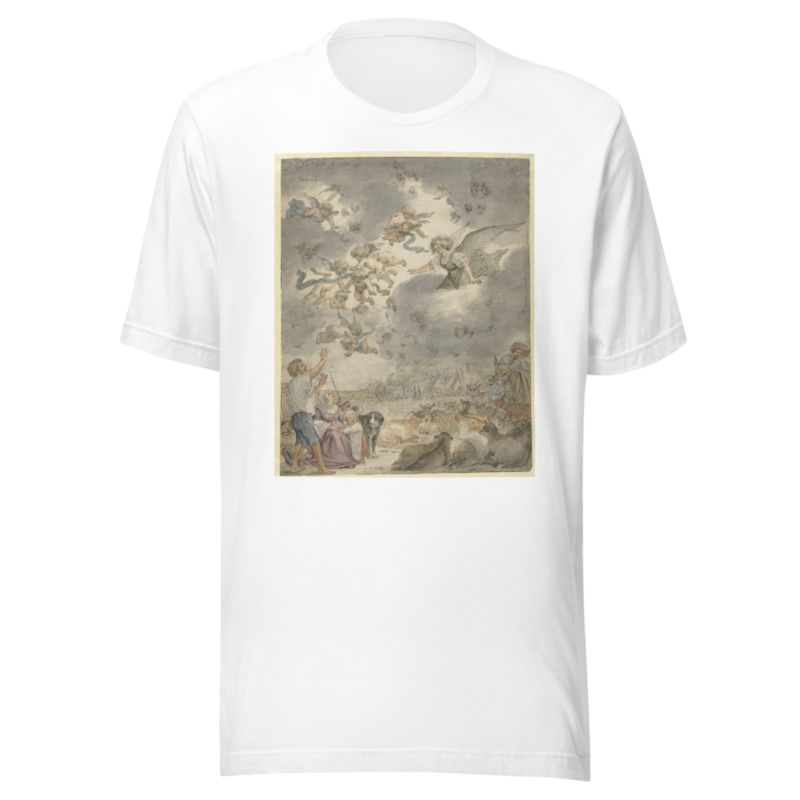
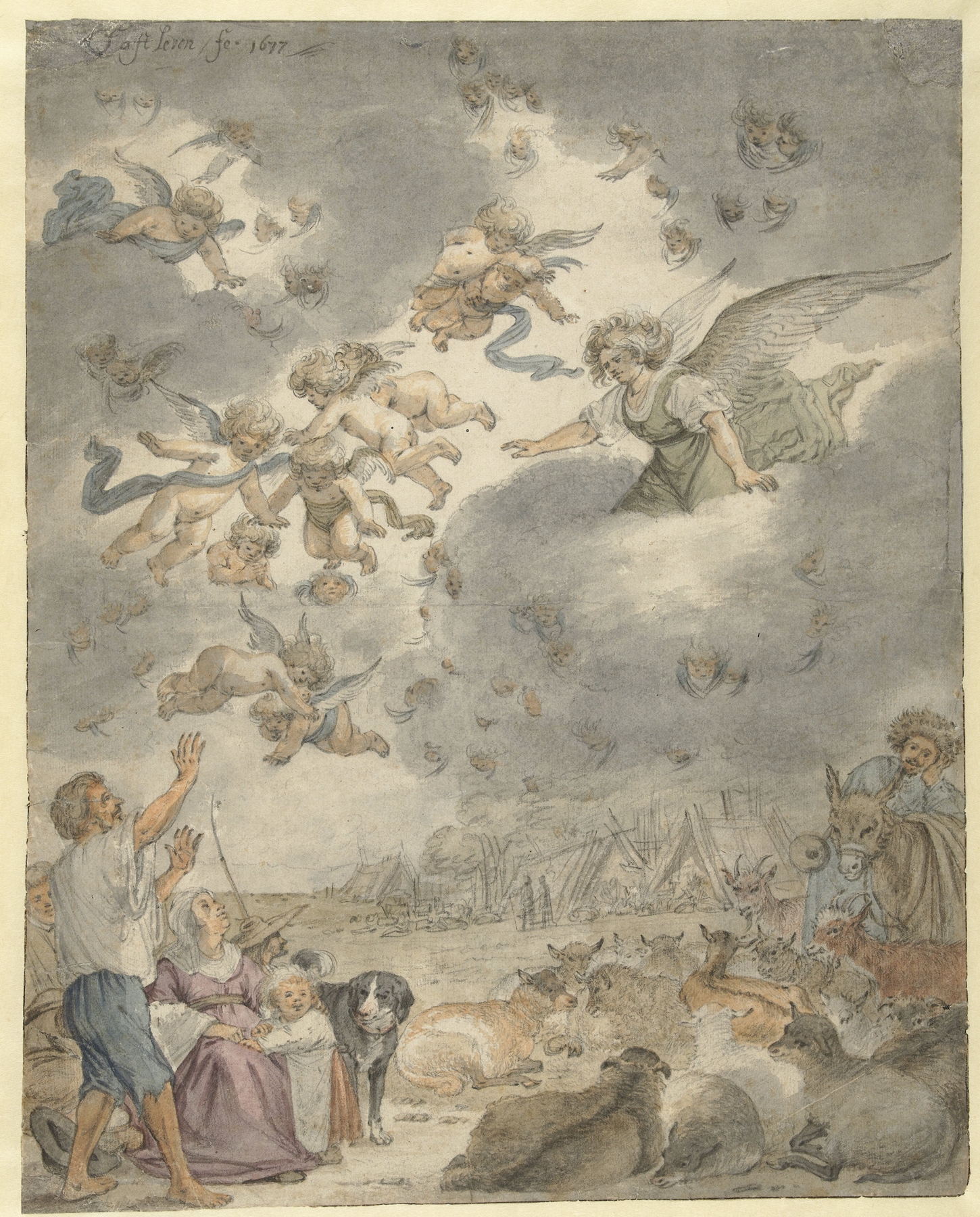
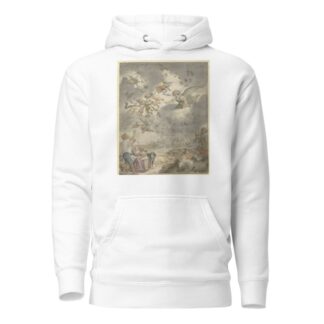
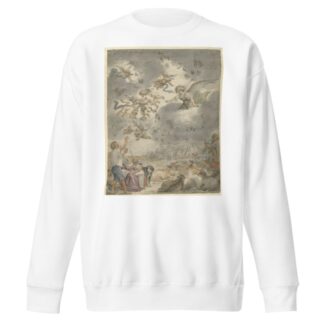
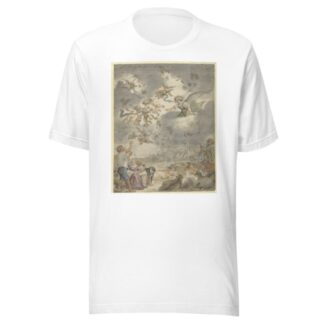
Reviews
There are no reviews yet.